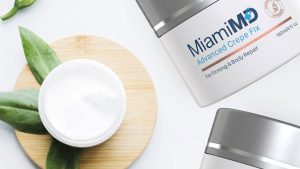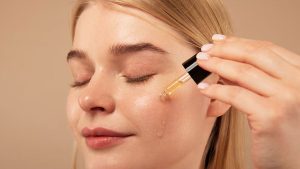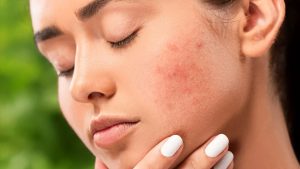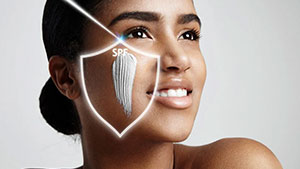What is Collagen and What Does It Impact?
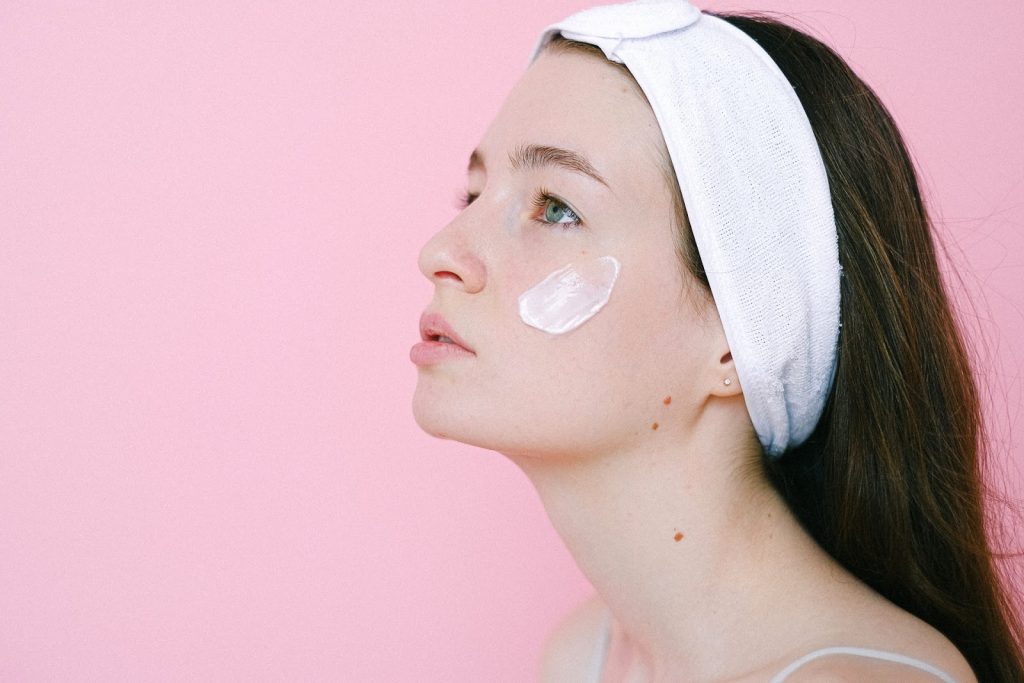
Any conversation about the goals of skin care products includes discussion about collagen… and for good reason. Collagen really is the skin’s “fountain of youth,” as it is one of the most abundant proteins that affects so many different “symptoms” of aging skin.
But what really is collagen, and what exactly does it impact? Are there products out there that can really help promote its production considering collagen synthesis steadily decreases with age?
MiamiMD has the answers that you need to be able to choose from the different types of collagen products and really understand exactly how it is that they benefit you, whether it’s a dietary supplement with collagen protein, or an anti-aging collagen product that boosts skin elasticity.
Collagen Basics
It’s impossible to overstate the benefits of collagen for the entire body, not just the skin. For a “simple” structural protein, it really does touch nearly every single part of the human body in some way.
Let’s start with defining what a collagen molecule really is.
At its very foundation, collagen is a protein that is made from a combination of amino acids and bonds. Really, though, collagen is a whole family of proteins. They are the primary structural component that makes up the body’s connective tissues, like cartilage and skin.
Because of that, they make up the vast majority of all of the protein that can be found in the body (by mass), and is why the word collagen comes from the Greek word for “glue.” There are also 28 different types, which are categorized based on their specific amino acid composition.
90% of the body’s collagen is considered to be Type I, which is the type that can be found in tendons, ligaments, skin, bone, and internal organs. The prevalence of the other types of collagen in the body goes down from there. Type II is the second most prevalent, and is found in cartilage. Type III are collagen fibrils, which are your large blood vessels and tissue that need to do a lot of stretching; type III also plays a role in early wound healing. Other types of important collagen types when it comes to skin appearance are Type IV (found in the basement membrane that surrounds most tissue) and Type V (which is found in the hair).
You’ll also see collagen powder aimed toward building muscle mass, but of course, the benefits from this kind of collagen supplementation are far different than what you’ll get from your skin care lotions or beauty supplements.
How is Collagen “Made”?
The good news is, collagen is naturally produced in the body, although how much your body produces can vary significantly depending on a variety of factors (which we’ll discuss later). The body takes the protein that it obtains from the foods we eat and breaks it down into amino acids. That is part of why amino acids are so frequently referred to as being the “building blocks” of protein.
The three amino acids that are most frequently used by the body to create collagen are glycine, hydroxyproline, and proline. In addition to those amino acids, the body also needs a few other components to be able to successfully make collagen that holds together on its own. Without vitamin C (also known as ascorbic acid), copper, and zinc, the body wouldn’t be able to create bonds between amino acids which would result in collagen that immediately falls apart.
To physically form the collagen, three long strings (chains) of amino acids are woven together. This forms a triple helix that is called a fibril, or sometimes simply known as the collagen helix. It is this shape and structure that makes collagen so strong, which is why skin that has more collagen feels firmer than skin that has less collagen.
Collagen and Elastin: The Dynamic Duo
Collagen is important, as you can see, but it also works hand in hand with another important component of creating younger, firmer skin: elastin. While elastin is not nearly as plentiful as collagen, it is absolutely critical for the skin’s function.
Elastin is also a protein, just like collagen. Both proteins are considered to be “key extracellular matrix” proteins, or KEM proteins, which means they are an essential component that make up the extracellular matrix (along with laminin) that supports the spaces between cells in the body.
As you may have already assumed by its name, elastin is known mostly for being the protein that creates elasticity in the tissue. In fact, elastin is said to be up to 1000 times more flexible than collagen in, which is why it is needed to help create not just firm skin but skin that returns to its original position if it is moved.
The way that collagen and elastin work together in that extracellular matrix is by forming a framework (or scaffolding). They each bring their own specific benefits to the skin, making it strong as well as firm, with the ability to bounce back as well. This matrix is located specifically in the dermis, which is the middle layer that sits between the epidermis and the hypodermis (sometimes referred to as the subcutaneous layer).
Why is Collagen So Important For Our Appearance?
It’s probably obvious why collagen is so important to keeping our appearance youthful and radiant, but let’s discuss it in a little more detail.
According to the American Academy of Dermatology (or AAD), collagen is directly related to how old we look. As our collagen starts to diminish, which happens at a rate of about 1% a year after our mid to late twenties, the skin starts to visibly lose its firmness. For most people, that means the skin sags and fine lines and wrinkles become permanent fixtures on the face.
But what causes that collagen loss?
As we just discussed, collagen loss is a normal part of the aging process. A 1% decrease in collagen isn’t all that noticeable at the beginning, but it can definitely start to compound as we enter into our mid forties.
To make matters worse, collagen loss starts to really ramp up around the time we hit menopause. In fact, there are some studies that have shown that the rate of collagen loss that happens in the five years surrounding menopause increases from that 1% to up to 30%! After those five years, the rate drops back to 2% a year, but the visible damage has already been done.
In addition to the natural aging process that slows down our natural collagen production, some of the choices that we make work to break down the existing collagen that we already have. The top trigger that causes this collagen breakdown is sun exposure over time.
Specifically, it is the UV (ultraviolet) light that can break down the connective tissue in the skin, both collagen and elastin. As the connective tissue is broken down, and the ability to replace it slows, fine lines and wrinkles become much more apparent on the face.
Smoking tobacco can also impact collagen. Mostly, this is because tobacco reduces the blood flow and circulation to the face. Without a proper supply of blood to circulate oxygen, the body’s ability to produce collagen is negatively impacted.
How Can We Use Skin Care To Improve Our Collagen Levels?
The way we chose to honor and incorporate collagen into our skin care products here at MiamiMD is twofold. We have products that include an oral collagen supplement, and we have topical products that are designed to serve as collagen supplementation direct to the skin.
Our oral supplement, the Total Beauty Matrix, contains the ingredient hydrolyzed collagen peptides (also known as collagen hydrolysate). According to Dr. J, hydrolyzed collagen peptides are one of the only types of collagen that women should consider using as they can not be easily dissolved in the stomach.
Because of that, the collagen peptides can really start to work to restore some of the collagen that was lost during menopause. We combine those collagen peptides with another ingredient, called saw palmetto, that is said to be able to promote estrogen levels, which can boost collagen production even further.
If you’re looking for a topical product that you can use to help promote collagen production from the outside in, try MiamiMD’s Instant Wrinkle Eraser. When applied directly to the skin on the face, the formula helps to encourage the production of collagen using an ingredient known as matrixyl synthe-6. Researchers at the University of Reading in the United Kingdom even did a study that showed that it had the potential to even double the amount of collagen in the body.
To really positively impact your collagen the most, combine using both oral and topical products. When you use them regularly as part of a skin care routine focused on hydration and skin nourishment, you can not only help improve the quality of your skin but also slow down the way it shows visible signs of aging.
When combined with other ways that you can protect and support your skin, like making sure to wear sunscreen and eating nutrient-rich foods full of antioxidants, you really can find the fountain of youth.
In Summary…
MiamiMD’s entire philosophy is based around the idea of functional beauty. That means that each of our skin care products was formulated so that you look gorgeous wearing them while also getting their lasting, deeper benefits over time.
Our products are science-driven, and made from pure ingredients using responsible processes (and are always cruelty free). We also paid attention to the ingredients that can most help with collagen production, to help make your face look as young and beautiful as it can.
Age is just a number, and increasing your collagen levels can prove that!
Sources:
https://www.livescience.com/collagen.html
https://www.aad.org/public/skin-hair-nails/skin-care/skin-care-during-menopause/
New research shows anti-wrinkle cream chemical works <br> (reading.ac.uk)
